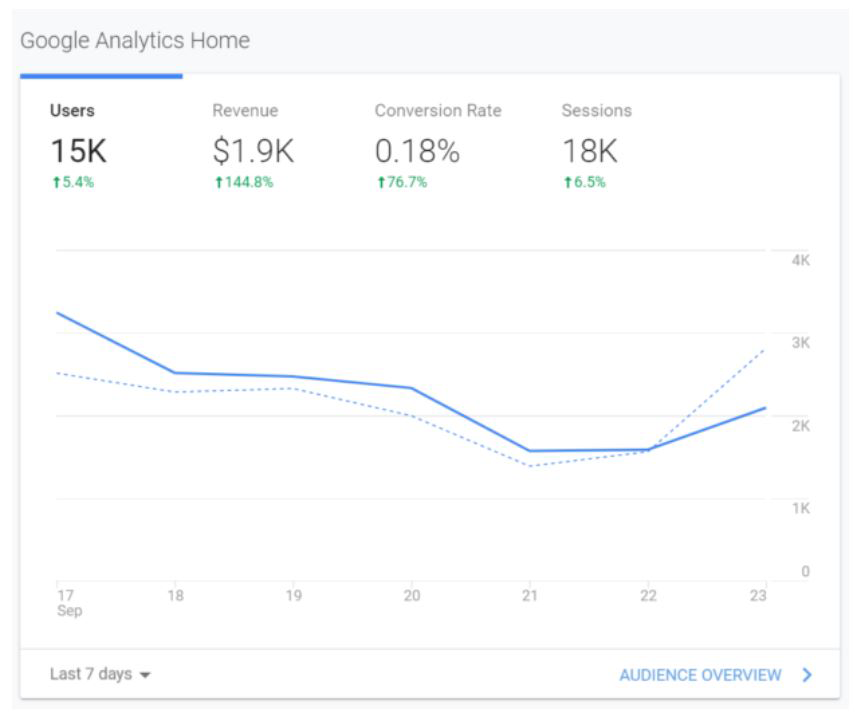
First Published: 15 January, 2020
If you own a website, I’m guessing you want people to visit, right? And if you’re selling services or products, you want to turn those visitors into customers by spending as little as possible right? Fantastic! So how’s your conversion rate (CVR) looking? And how does it benchmark against your competitors or business goals? But before we answer, just checking you know your CVR? Yes? Then please skip on ahead. Nope? Then let’s quickly find it by first defining what it is:
Website Conversion Rate = your website visitors performing a defined action
Then the formula looks like this:
Website Conversion Rate = total number of form enquiries + phone calls / website visitors
So for example, if a law firm had 1,000 website visitors during the month of August, with 15 combined form + phone call enquiries, the CVR = 15/1,000 = 1.5%
Then the formula looks like this:
Website Conversion Rate = total number of transactions / website visitors
So for example, a business selling shoes online had 3,700 website visitors during the month of August, with 75 online shoe sales, the CVR = 75/3,700 = 2.03%
How you determine the defined action varies depending on what type of business you’re in. If you’re selling products your CVR would be how many visitors convert to sales, another good one would be newsletter signups so you can keep marketing to them. If you’re a service-based company, then content downloads and general contact us form enquiries would be more important if your objective is lead generation.
The most common and free platform is Google Analytics (GA) but to get this set up you will need to add some code. Inside GA you will be able to look at your CVR for all the different channels as well, for example how Google Ads compares to your Email Campaign.
You will need to ensure that your defined actions (also referred to as ‘conversions’) are correctly set up on your website. Platforms like Shopify integrate nicely with GA and the set up is really easy however, if you need help then we can assist.

Great, so now you have your CVR it’s back to our original question:
If you are an e-commerce site, then anything between 2-3% sales conversion is regarded as industry standard. If yours is higher great stuff! Lower? We need to do some work!
For a service-based website, rule of thumb is to aim for about 5%, however, we have worked with some websites that are up around 15-25%. This did not happen overnight, and a lot of work has been done to optimise the advertising and website pages where people are sent (also known as ‘conversion rate optimisation’).
Factors that affect CVR include:
Build your benchmark based on your business objectives and average industry comparisons.
You want a better conversion rate than what you currently have right? In our next post, we’ll discuss tips for improving your website conversion rate.
Hold tight – that’s when we really start having fun!
Blog provided by This Side Up
Need help? We’re just over here

Contact us if you have any suggestions on resources you would like to see more of, or if you have something you think would benefit our members.
Get in TouchSign up to receive updates on events, training and more from the MA.
